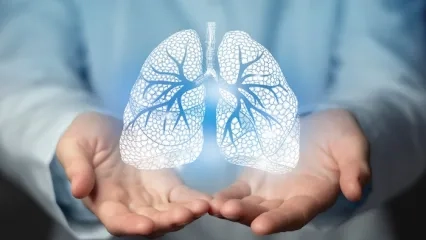Alo Yeditepe
Alo Yeditepe
10 Ways to Have a Sound Sleep in the Heat
Due to the extreme heat, it has become almost impossible to fall asleep and sleep soundly until the morning. Dr. Akduman made simple but effective suggestions against this problem…
In recent days, increasing air temperature cause fatigue, irritability, headaches and concentration disorders during the day and sleep problems at night. Chest Disease Specialist Dr. Lecturer Seha Akduman explained the ways to deal with this problem as follows:
How is the body affected?
With the increase in temperature, imbalances occur in the vascular structures of the body, the pulse rate and It is very important that the autonomic nervous system of the body that becaming involved need to be in balance during sleep. It is very One of the most important parameters providing this balance is heat. the parasympathetic system which have an impact on going to sleep that the temperature needs to be between 20-22 degrees for effectivity and when these values are exceeded, pulse rate, blood pressure decreases, the amount of blood returning to the heart and pressure regulation are disrupted during sleep. Brain oxygenation is also affected by this. As a result, sleep quality and sleep quality phases become irregular. So naturally, when the temperature level increases, there is a disruption in the body's natural balance and as a result, insomnia occurs. The ideal humidity rate is between 40 and 50 percent.
What can we do?
Although air conditioning, fans or leaving windows open to cool the environment and ourselves are among the solutions, sometimes it is not enough. We can do the following to ensure sleep hygiene and protect our health:
Do not take naps during the day
Although hot weather naturally creates a feeling of weakness or fatigue, do not sleep during the day to satisfy this need. Especially those who have sleep problems, even these small naps during the day will further affect their disrupted circadian rhythms. For this reason, try to maintain the same sleep pattern as much as possible.
Keep hot air out of your room
Especially if you have a bedroom facing the sun during the day, it will be inevitable for all the heat to come in. In this case, it becomes more difficult to cool the room at night. To prevent this, keep your windows, curtains and blinds closed during the day. Letting in the cool air and ventilating the room before going to sleep can improve your sleep quality and help you wake up rested in the morning.
Be careful what you drink
Also pay attention to the drinks you choose to quench your thirst. The caffeine contained in drinks such as tea and coffee will prevent you from sleeping. Instead, consuming refreshing ayran or kefir in the evening will help you quench your thirst and help you sleep comfortably. Also avoid drinking alcohol in hot weather because although alcohol may seem to make it easier for you to fall asleep, it causes excessive dehydration and disrupts your sleep quality at night.
Use cotton bedding
Make sure that the bedding you use is as natural and cotton as possible. Products containing synthetics will increase heat, causing you to sweat and preventing you from sleeping. Wear comfortable and thin clothes while sleeping.
Cool yourself down
Lowering your body temperature will help you fall asleep. For this, you can take a warm shower before sleeping. It will also be beneficial to wash your hands and feet with cold water as it will help reduce body temperature. In addition, although it is an old method, keeping a damp cloth or towel with you and wiping your forehead and arms will cool you down and help you sleep.
Don't strain on yourself to sleep
If you can't fall asleep, don't strain yourself. Read a book or get fresh air to calm yourself down. However, for your sleep hygiene, stay away from your television or phone.
Drink enough water during the day
Hot weather naturally requires a lot of water. However, drinking too much water before going to bed will cause you to wake up at night to need the toilet, which will disrupt your sleeping pattern. To prevent this, spread your water needs throughout the day as much as possible.
Do not use air conditioner or fan while sleeping
Cool your room about an hour before going to bed and then turn off the air conditioning. Sleeping in a room with air conditioning running can cause different health problems. If the environment will be cooled with air conditioners, maintenance of the air conditioners is very important. Especially due to the risk of allergies and infections, controlling air conditioners and filters, ensuring that the room humidity does not exceed 40-50 percent, and humidity levels above 60 degrees are very risky, especially for the growth of mold fungi and bacteria. During this period, complaints of those with asthma and allergic diseases may increase due to humidity. In the general population, the patient may develop breathing difficulties as humidity increases. If you want to use products such as fans and fanners, choose quiet ones. Because while you are trying to cope with insomnia, the sound coming from these devices can also disrupt your sleep.
Turn off the lights and all your electronic devices
The heat emitted by electronic devices or light bulbs will also increase the temperature of your room. Likewise, it is useful to turn off devices such as televisions and phones before going to bed, as they emit heat and light. Thus, you prevent the temperature of the room from increasing and the dark, dim environment will help you sleep hygiene and fall asleep much easier.
Put distance between you and your sleeping partner
Although it is another pleasure to sleep with the person we love, if you want a comfortable sleep in hot weather, you will have to take a break from this habit for a short time. Because heat will remain between the two bodies for a longer time due to heat transfer, it will be difficult to cool the environment.
About
Faculty and Year of Graduation:
Gazi University Faculty of Medicine, 2007
”
See Also
- How to Cleanse Your Lungs?
- Is Breathing Air Dangerous in Fires?
- What is Electronic Cigarette Disease (EVALI)? EVALI Symptoms and Treatment
- What is COPD? Symptoms and Treatment of COPD
- Long Journeys Increase the Risk of Embolism!
- What Asthma and COPD Patients Should Pay Attention to When Using Air Conditioning!
- What is Allergy? What are the Symptoms of Allergy?
- What is Desert Dust? Harms of Desert Dust
- Lung Cancer Screening Age
- What is Good for Cough? How to Cure Cough?
- Lung Cancer Symptoms and Treatment
- What Should Asthma Patients Be Cautious About?
- Does Poor Quality Sleep Increase The Risk of Asthma?
- What Causes Insomnia, Diagnosis and Treatment
- 9 Common Misconceptions About COPD
- Causes, Symptoms, and Treatment of Asthma
- Allergy and Asthma During Pregnancy
- It Is Aimed to Eliminate Tuberculosis Worldwide By 2030
- Lung Patients Should Not Stop Their Medications
- 4 Significant Preliminary Symptoms of Lung Cancer
- How Does Acid Rain Affect Human Health?
- The Slowing Traffic in Istanbul Increases the Risk of Cancer!
- The American Cancer Society Has Announced; The Age of Screening For Lung Cancer Has Decreased
- Hidden Lung Cancer Cases Revealed in Tomographs Taken Due to Coronavirus
- Obesity is Both a Cause and Consequence of Sleep Apnea
- Asthma and COPD Attack Season Begins
- Lung Cancer
- Snoring and Its Treatment
- Using Antipyretics Uncontrolled Can Hide Pneumonia Symptoms
Alo Yeditepe




